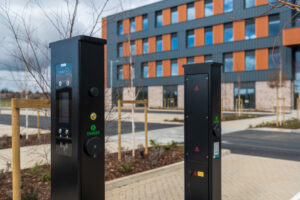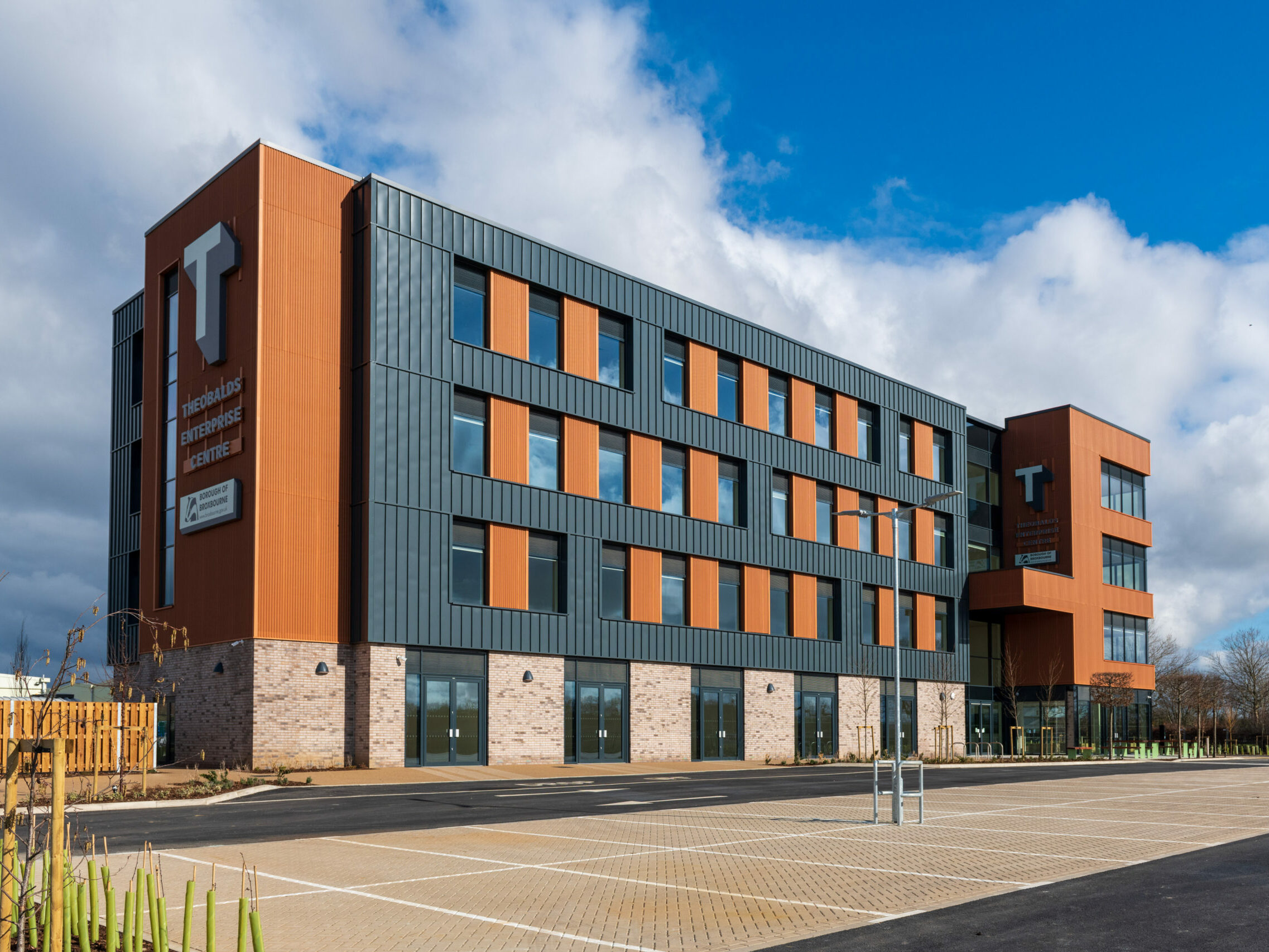With any new build project, Ashe’s teams try and prepare for all eventualities, but at Theobalds Business Park in Hertfordshire, Ashe had a few hurdles to jump that might make even the most experienced project manager scratch their head.
Perfectly located on the A10 near the M25, the £10m development for Broxbourne Council is aimed at local SMEs and high-tech start up companies. Built with £5m of funding from Hertfordshire Local Enterprise Partnership and the Getting Building Fund, the business park will provide accommodation for up to 90 people. The fully managed, air conditioned building will have a reception service, meeting and conference rooms, workshop and offices space with breakout areas, changing and shower facilities and a café, creating an ideal place for meetings.
New foundations
Project manager Andrew Pacey said right from the get-go, the project posed some challenges which required some out of the box thinking. He explains: “The original plan was for vibro pile compaction foundations, but we found an old 600mm cast iron watermain belonging to Thames Water on the site so this method was too risky. We went to our design team for a solution, and they recommended installing various sized manhole sections filled with concrete for the ring beams to sit on, however, this would cost more than the original plan.”
Despite the extra cost of this being approved by the client, Ashe realised they could change the building structure with the new stronger foundations which would reduce the overall building cost. This saving offset the cost of the new foundations, benefiting the customer but with no detriment to their building.
Bomb risk
Another unexpected challenge was finding out that an American bomber had crashed near the site in 1944. For safety, Ashe needed to have to have an unexploded ordnance surveyor on site, looking for unexploded bombs during the five weeks that they were digging the foundations and drainage.
Fortunately, the project continued as planned until it was found that the specified products for the ceiling had been discontinued. Rather than using the nearest match, which would have cost the Council more, Ashe found an alternative which saved £35k.
Off grid
The team had to overcome working without access to mains power and water throughout the project. However, when it came to commissioning stage, there was still no power and water at the site, but the team didn’t want that to hinder the planned handover date. Andrew continues: “The building was ready, and we didn’t want delay practical completion so to mitigate this, and further costs for the client, we decided to bring in a temporary 10,000 litre pumped water tank which we filled with chlorinated water to enable heating and plumbing to be tested.”
The building has a very good BREAAM rating for sustainability and efficiency and is powered with solar energy, with EV charging points and ample parking for cars and bikes.

Andrew adds: “This is a high-tech site and designed to have an exceptional standard, Platinum WiredScore Certification for resilient wired and wireless connectivity. Unfortunately, there were delays to this connection with the main data line on the opposite side of the A10, so our solution for the electrical commissioning was to change the lights from wi-fi controlled to hard-wired, which would enable the electrical commissioning to go ahead as planned, saving the Council £20k.
Signs in time
Alex Neill, Ashe’s managing surveyor on the project said: “A further conundrum was the feature signs at the site. There was a delay in naming the new building therefore the signage consultant provided us with the signage designs after the cladding had been completed. Our solution was to alter the fixing method for the final panels to enable it to be removed and re-fitted with the signage at a later date. Changing the fixings meant that the building would look neat and complete whilst waiting for the signage to arrive at the site.
“Within 12 working weeks of receiving instruction for the signs we were able to design the sub frames and electrical scheme, manufacture and install the signage all around a finished building. Access to the working area was a challenge now the building was complete, so we used a giant cherry picker to span the finished landscaping. By working this way we reduced the time and cost implications of waiting for the final signage instructions.”
By making problem solving changes throughout the project, Ashe saved Broxbourne Council around eight weeks of delays and approximately £250,000 in associated costs. With the data connection still unresolved, six months after practical completion, Ashe has prevented the building being left in the dark, and further unnecessary costs for council taxpayers.



